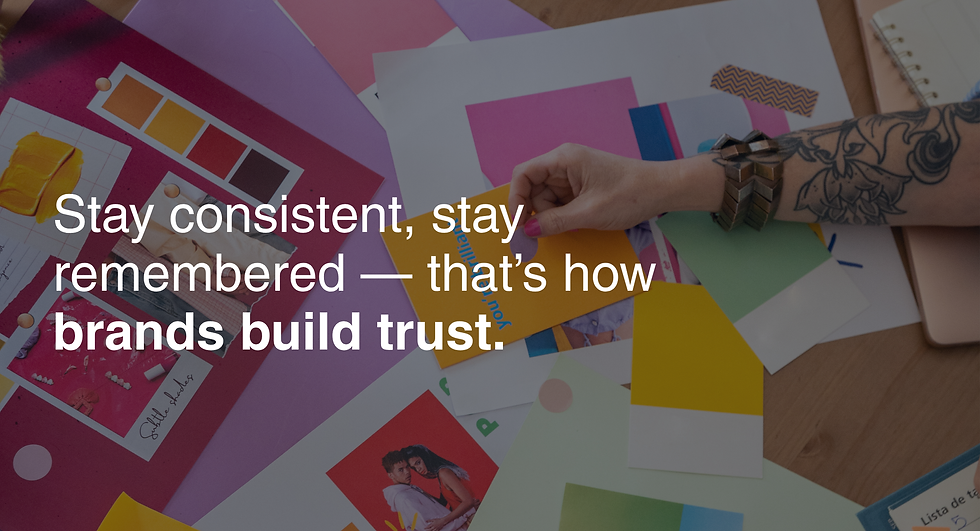DIY vs. Professional Web Design - What’s Best for Your Business?
- Yvan Lamoureux
- Dec 12, 2024
- 7 min read
Ordering a pizza might be routine, but designing a successful website requires much more—a thoughtful, custom approach tailored to your brand's unique needs. #WebDesign #CustomWebsite #UserExperience #Branding #DesignStrategy #DigitalMarketing #WebsiteDevelopment #CreativeDesign #UXDesign #BusinessGrowth #MarketingInnovation

In today's digital age, having a website is not just a nice to have; it's a necessity for any business. Your website is the online face of your brand, often the first point of contact between you and potential customers. With so many website-building options available, the question arises: Should you go the DIY route using platforms like Wix or Squarespace, or should you hire a professional web designer or agency to create a custom-built website?
The decision between DIY and professional web design is more than just a matter of cost. You're not just ordering a Pizza; there is more to it. It touches on factors like customization, SEO performance, scalability, mobile optimization, and long-term success. In this article, we’ll weigh the pros and cons of both approaches, helping you decide which is best for your business.
What is a DIY Website Builder?
DIY website builders, such as Wix, Weebly, and Squarespace, allow users to build websites using pre-designed templates and drag-and-drop editors. These platforms are marketed as affordable, user-friendly, and quick to set up, making them appealing to small business owners, solopreneurs, and startups with limited budgets and time.
Pros of Using a DIY Website Builder
1. Cost-Effective
The most apparent advantage of DIY website builders is the low cost. Basic plans for platforms like Wix and Weebly can range from $10 to $30 per month, making them accessible to businesses with tight budgets. Some even offer free versions, though these often come with limited functionality and mandatory ads.
2. Ease of Use
DIY platforms are designed with beginners in mind. With no coding experience necessary, anyone can create a website by dragging and dropping elements like images, text, and buttons into place. This makes it easy to launch a basic website in just a few hours or days, depending on the complexity of your design.
3. Quick Setup
If you need a website up and running fast, DIY builders are often the fastest solution. You can choose a template, add your content, and publish your site in a fraction of the time it would take a web designer to custom-build a site.
4. No Technical Skills Required
One of the biggest benefits is that no coding knowledge is necessary. All the technical aspects of website management—such as hosting, updates, and security—are handled by the platform itself.
Cons of Using a DIY Website Builder
1. Limited Customization
While DIY platforms offer a variety of templates, they are often rigid in their design capabilities. Customization options are limited, and it can be challenging to create a truly unique website that sets you apart from competitors. As your business grows and your needs become more specific, you may find the templates too restrictive.
2. Basic SEO Tools
SEO (Search Engine Optimization) is crucial for attracting organic traffic to your website. While DIY platforms often offer basic SEO tools, they may not provide the same level of control or advanced options as a custom-built website. This can affect your ability to optimize your site for search engines and, ultimately, your visibility online.
3. Scalability Issues
As your business grows, so too will your website's needs. DIY platforms can handle smaller sites with basic functionality, but if you need advanced features like custom eCommerce capabilities, a robust customer management system, or extensive databases, you may find that DIY platforms can't scale effectively.
4. Branding and Uniqueness
With DIY platforms, you’re often working within the limitations of pre-designed templates. This can make it difficult to create a website that truly reflects your brand identity. You may end up with a site that looks similar to countless others, making it harder for your business to stand out in a competitive market.
5. Potential Performance Issues
DIY platforms can struggle with load times, particularly when users add too many elements or use high-resolution images. Slow page load times negatively impact user experience and can cause higher bounce rates, particularly on mobile devices.
What is Professional Web Design?
Professional web design involves hiring a freelance designer, developer, or an agency to create a custom-built website. These services tend to be more expensive upfront, but they offer a range of benefits that can contribute to long-term success.
Pros of Hiring a Professional Web Designer
1. Custom Design
The most significant advantage of hiring a professional web designer is the level of customization. A professionally designed site can be tailored to meet your specific business needs and branding. Instead of working within the limitations of a template, a web designer can create something unique, designed from the ground up to reflect your brand’s identity.
2. Better SEO
Professional web designers often work with SEO specialists to ensure that your website is fully optimized for search engines. This includes everything from proper keyword usage to technical SEO, like optimizing site speed, security, and mobile responsiveness. The result? Your website has a better chance of ranking higher in search engine results, driving more traffic to your site.
3. Scalability and Flexibility
A professionally designed website can be built with scalability in mind. Whether you need to add new features, integrate with third-party services, or handle an increasing number of users, a custom-built site can grow alongside your business without the restrictions of a DIY platform.
4. Mobile Optimization
Mobile optimization is no longer optional—it's essential. With more than 50% of global web traffic coming from mobile devices, ensuring that your website is fully optimized for smartphones and tablets is crucial. While some DIY platforms offer mobile-responsive templates, a professional web designer can take mobile optimization to the next level, ensuring that your site performs beautifully on any device.
5. Long-Term Support
When you hire a web designer or agency, you're not just paying for the initial build—you’re often getting ongoing support. Whether it’s fixing bugs, adding new features, or making updates, having a professional team available can save you time and headaches. You’ll have peace of mind knowing that your website is in good hands.
6. Integration with Business Tools
A professional web designer can integrate your website with your CRM, email marketing platform, analytics tools, and any other software you use to run your business. This level of integration can streamline operations and improve the overall user experience for both your customers and your team.
Cons of Hiring a Professional Web Designer
1. Higher Upfront Cost
The most significant drawback of hiring a professional web designer is the cost. A simple website might cost anywhere from $3,000 to $10,000, while more complex websites can run upwards of $50,000 or more. For small businesses or startups with limited budgets, this may be a significant hurdle.
2. Longer Development Time
Custom websites take longer to build than DIY websites. The development process typically involves several phases, including discovery, wireframing, design, coding, and testing. While the result is a higher-quality product, it requires a longer timeframe, sometimes taking weeks or even months to launch.
3. Dependency on a Third Party
When you hire a web designer, you’re reliant on their availability for updates, fixes, and adjustments. If you need changes made quickly, you might have to wait depending on their schedule. It’s essential to hire a reliable web designer or agency with a proven track record of responsiveness and support.
Making the Decision: DIY or Professional?
So, which is best for your business—a DIY website builder or a professional web designer? The answer depends on several factors, including your budget, the complexity of your needs, and your long-term goals.
When to Choose a DIY Website Builder
Budget is a significant constraint: If you’re a startup or small business with a limited budget, a DIY platform can be a cost-effective way to get your business online.
You need a site fast: If you’re launching quickly or need a temporary website, a DIY builder might be the way to go.
You have basic website needs: If you don’t need complex features or integrations, and you’re comfortable with a template design, a DIY builder can serve your needs.
When to Hire a Professional Web Designer
You need a custom solution: If your website needs specific functionality, integrations, or a unique design that reflects your brand, hiring a professional is the better choice.
You want to scale: If you anticipate needing advanced features or high traffic volumes in the future, a custom-built website will be more scalable.
You value SEO and performance: If search engine rankings and website performance are top priorities, a professionally designed website will give you a better shot at long-term success.
Choosing between a DIY website builder and a professional web designer isn’t a one-size-fits-all decision. DIY website builders are budget-friendly and fast, but they come with limitations in customization, SEO, and scalability. On the other hand, hiring a professional web designer or agency offers a higher-quality, custom-built website that can grow with your business, but it comes with higher upfront costs and a longer timeline.
Consider your business goals, budget, and long-term plans when making your decision. Whichever route you choose, your website is a critical asset to your business, and investing in its success will pay off in the long run.
______________________________________________________________________________
Schedule a call today with one of our team members to discuss your marketing and advertising needs - For more details, Click Here.
______________________________________________________________________________
This blog is not meant to provide specific advice or opinions regarding the topic(s)
discussed above. Should you have a question about your specific situation, please
discuss it with your CWC marketing advisor.
Crankworks Creative Inc. is a full-service marketing and advertising firm in the Greater Waterloo Area. We primarily service all of Ontario and the rest of Canada, the US and Australia virtually. Our team provides marketing audits and reviews, brand equity assessments, and tactical marketing and advertising support for both traditional and digital media. We provide specialized services and expertise for the Construction, Industrial/Commercial Building, General Contractors, Subcontractors, Procurement professionals, Facilities Management, Manufacturers, Suppliers, Allied services, and general advisory services.
If you would like to schedule a call to discuss your marketing and advertising with one of our team members, please complete the free, no-obligation meeting request. For more details, Click Here.




I think both, DIY and Professional Web Design has good for their specific business related work. I'm using web design for book illustration service in uk business website.
Looking for expert digital marketing and web development services in Ontario? Boost your online presence with our trusted solutions designed for success!